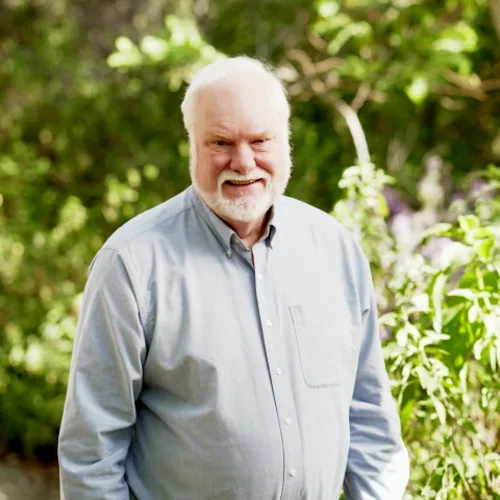
About
Kenneth P Roos, Ph.D. is an Adjunct Professor Emeritus (on recall) in the Department of Physiology of the David Geffen School of Medicine at UCLA. He received an AB in Applied Physics and Information Sciences from the University of California at San Diego (Revelle College) in 1971. His Masters (Biology, San Diego State University, 1974) and Ph.D. (Zoology, University of California, Davis, 1978) theses focused upon skeletal muscle function using the then novel light diffraction optical monitoring technique to reveal sarcomere length dynamics in frogs and dystrophic mice. He shifted to the examination of cardiac muscle mechanics when he started his postdoctoral studies with Allan J. Brady in the UCLA Cardiovascular Research Laboratory and Department of Physiology with an American Heart Association Fellowship. These early career studies involved the pioneering development of computer-interfaced optical imaging and force measurements applied to the study of isolated cardiac myocytes when they first became available. In the 1980s and 90s, these approaches were extended to study myocytes derived from cardiomyopathic or transgenic hearts. In 1990 he became the manager of the Department of Physiology teaching lab in the David Geffen School of Medicine. Since then, he has been heavily involved in the instructional mission of the department by teaching numerous lectures and laboratories for the medical and dental students. In 1992 he was appointed an Adjunct Associate Professor of Physiology. In 1998 he became the director of the new start up UCLA Mouse Physiology Core laboratory. It’s goal was to evaluate cardiac and regulatory function in rodent models of diseases using traditional physiological approaches. Though Dr. Roos retired from the University in 2015, he is back on recall to continue teaching and to run the core lab as a resource for the Department of Physiology and UCLA as a whole.
Research Interests:
Cardiac Physiology
As director of the UCLA Mouse Physiology Core Lab, his research focuses upon the physiological assessment of basic and translational cardiac function in rodent models in collaboration with other investigators. The core lab utilizes a wide range of invasive and non-invasive tools to assess animal models in a manner parallel to human assessments. These include echocardiography, ECG, EEG, pressure & vital sign monitoring, surgical manipulations, safety toxicology assessment, metabolic and exercise testing.
One major research emphasis has been on evaluating rodent models of heart failure and cardiac disease. Such efforts investigated the role of the sodium-calcium exchanger (NCX) with mouse models of altered NCX flux. Additionally, there has been involvement in investigations of other cardiac disease models related to cell cycle control, HIV cardiomyopathy, as well as models with defects in the cytoskeleton, signaling pathways, lysosomes, ion pumps, and more. For over a decade, the lab has been involved with a number of translational studies using progenitor cells and other agents to improve cardiac function following myocardial infarction. These translational studies have provided considerable insight into this very active and rapidly advancing field. Such studies have been generally successful in reducing infarct size and improving outcomes.
The lab has also been involved in studies using numerous other disease models including muscular dystrophy, Parkinson’s, Huntington’s, VIP and other neuro-regulatory defects. Substantial contributions have been made in using circadian regulation (light, exercise and food timing) in improving outcomes in several models. More recently, the lab has focused upon the effects of electronic and conventional tobacco cigarettes on cardiovascular health in both male and female mice.
Since the lab’s inception, it has made contributions to a wide variety of studies to better understand basic cardiac physiology as well as to better understand potential treatment strategies using various mouse models and investigative tools.
Honors and Awards
- 2011 Excellence in Medical Education Award, David Geffen School of Medicine at UCLA.
- 2003 Fellow of the American Heart Association (FAHA).
- 1985 Crump Award for Excellence in Medical Engineering, UCLA School of Engineering
- 1980 First Place - Young Investigators Forum, American Heart Assn, GLAA
Research Interests & Expertise
The physiological assessment of basic and translational cardiac function
Department: Physiology